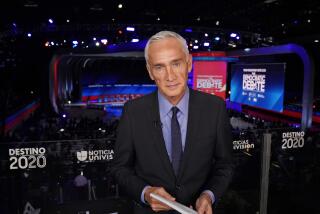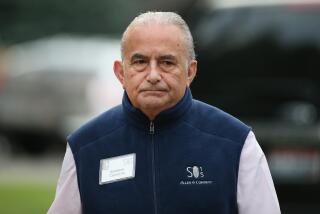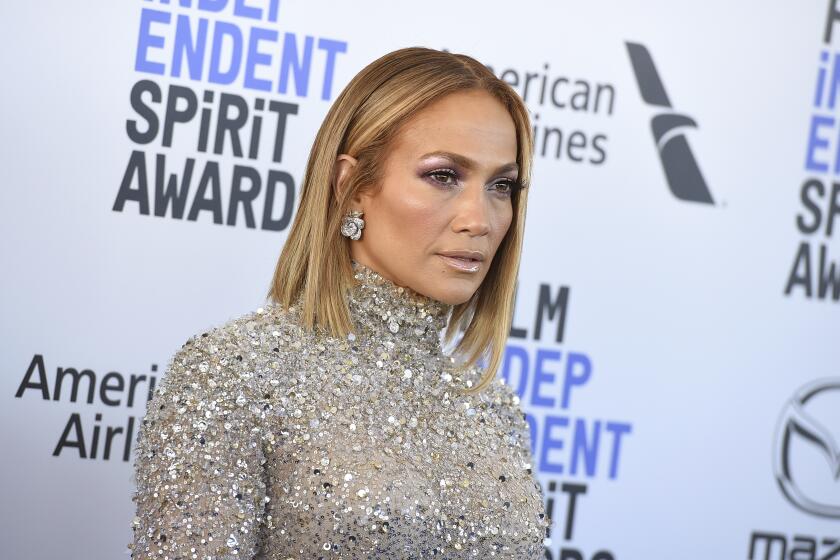How Televisa Lost Univision Bid
- Share via
The investment bankers had gone through the numbers. The lawyers had said their piece. Now, the board of Univision Communications Inc., the nation’s largest Spanish-language media company, had a decision to make.
Should it extend its auction to allow its longtime partner, the Mexican media conglomerate Grupo Televisa, to try to beat a higher offer already on the table? Or should it accept that offer of $12.3 billion from a private equity consortium that included billionaire Haim Saban?
Televisa rushed two letters to Univision Chairman and Chief Executive A. Jerrold Perenchio imploring him to continue discussions, saying it was willing to up its bid. And late Monday, in a conference room in Univision’s Century City headquarters, a Televisa representative who sits on the board pleaded for more time.
But Perenchio had made up his mind: Televisa was out.
“I never made a dollar waiting for them,” Perenchio told a person involved in the deal at one point.
Univision said Tuesday that it had accepted the offer of $36.25 a share from the other consortium, which was led by private equity firms Providence Equity Partners, Madison Dearborn Partners, Texas Pacific Group and Thomas H. Lee Partners along with Saban, who had made millions on the Mighty Morphin Power Ranger cartoons.
Univision valued the deal at $13.7 billion, which includes the assumption of the company’s $1.4 billion in debt.
When the auction was announced in February, the word went out that Perenchio was hoping for $40 a share, which is why many expected him to play his two bidders against one another at least a little longer.
“What was surprising was that there was no real second round to the auction,” said Merrill Lynch & Co. media analyst Jessica Reif Cohen, one of several analysts who were struck by the swiftness of the decision.
In the end, Televisa’s bid had too much going against it, sources involved in the auction said. Had it prevailed, Televisa was certain to face a tough regulatory fight because of rules that limit foreign ownership of U.S. broadcasting companies. Moreover, after four of Televisa’s equity partners walked away from the deal last week, Univision was not certain Televisa would be able to raise its offer.
“It wasn’t so much a bird in the hand versus two in the bush,” said one person who was in the room Monday night, summing up Perenchio’s thinking. “It was a bird in the hand versus what’s in that bush?”
It didn’t help Televisa any that Perenchio, 75, a silver-haired former boxing promoter, was eager to deliver a knockout punch to the Mexican company’s aggressive young leaders, more than one person said.
“This was a personal issue -- there was just so much animosity,” said a source close to Televisa, who asked not to be named because of the companies’ ongoing relationship. Perenchio, the source added, “left money on the table. But if you are trying to buy something and the seller doesn’t want to sell to you, then what do you do?”
The agreement announced Tuesday contains a clause that would let Univision call off the deal with the Saban group if Televisa came up with additional financing. To do so, however, Televisa would not only have to beat the Saban group’s price, but it would also have to pay a $300-million break-up fee.
Few, however, expect Televisa to muster a new bid. Instead, the source close to Televisa said, the company was inclined to “take some time to reflect.”
Under Perenchio, Univision has grown from a faltering operation to a media conglomerate that generates nearly $2 billion a year in revenue from its two broadcast networks, a cable channel, 62 TV stations, 69 radio stations and a music division that has four record labels.
Univision boasts the nation’s fifth-largest TV network, which often beats ABC, CBS and NBC among young adult viewers.
Should the sale go through, Perenchio, who owns 11% of Univision, will collect about $1.3 billion. That’s a handsome return on the $33 million the Bel-Air billionaire invested when he, Televisa’s Emilio Azcarraga Milmo and Venezuela’s Gustavo Cisneros bought the company in 1992 for $550 million.
Though the three men put up equal amounts, it was Perenchio who took control of Univision because he was the only U.S. citizen in the group. Federal laws require that foreign investors own no more than 25% of a U.S. broadcasting company.
From the start, there have been tensions, most of which center on the terms of an ironclad 25-year agreement that requires Televisa to provide its popular telenovelas exclusively to Univision in the U.S.
Last year, Emilio Azcarraga Jean -- who took over Televisa in 1997 when his father died -- resigned from the Univision board after Perenchio tapped a longtime lieutenant to become president of Univision. Azcarraga complained that Perenchio made the decision unilaterally, without the input of Televisa, which owns 11% of Univision, or Cisneros’ Venevision, the largest shareholder, with 14%.
Despite the bad blood, at first things were looking good for the Televisa bid. To lure investing partners, Televisa had put the word out that it, not Univision, controlled the rights to use its programming on the Internet. Not only that, but Univision’s rights to air popular Mexican soccer matches expire next year.
“All of the roads were leading south to Mexico City,” said a source close to Perenchio.
But along the way, Televisa told prospective partners that it wanted a say in Univision’s management, a demand that some investors found troubling. Then last week, three of Televisa’s private equity partners bailed out. Televisa missed the deadline to submit its bid.
Late Thursday, Televisa and its remaining partners -- Bill Gates’ Cascade Investment and Bain Capital -- submitted a bid of $35.75 a share, which was 25 cents more a share than the Saban group. By Friday night, Univision’s bankers were on the phone with the Saban group discussing a new bid.
Over the weekend, that group came up with the $36.25-a-share offer. Madison Dearborn, Providence Equity, Texas Pacific and Thomas H. Lee Partners each put in more than $900 million in equity, and Saban contributed $250 million. (The price values Univision shares currently outstanding at $11.3 billion, but with options exercised, the amount rises to $12.3 billion.)
Meanwhile, the Televisa team was waiting for an answer, unaware that its bid was being overtaken. Late Friday, a fax arrived from Univision. The board would meet at 6 p.m. Monday, it said, to discuss a “possible transaction.”
In a statement issued Tuesday, a “disappointed” Televisa acknowledged that it had been shut out: “Notwithstanding our repeated offers to discuss all aspects of our proposal including price, Univision and its advisors refused to enter into any discussions with us after we submitted our initial bid.”
Analysts say Televisa has a number of options.
“They didn’t get Univision this time, but who knows what will happen in the future?” said Reif Cohen, the Merrill Lynch analyst, who predicted that the new owners would be motivated to patch things up with Televisa. The private equity partners and Saban “are a very pragmatic group of businessmen. They will likely try to mend fences with Televisa as a benefit to all.”
In fact, the offer that the Saban group submitted contains a provision that would allow Televisa to roll over its shares and increase its equity stake to more than 19%. That would save Televisa a projected $300 million in taxes, give it an ownership interest and reduce the amount of capital that the group would need to finance the deal.
“There is finally the potential for all of them to work together in a more pragmatic, less heated and less emotional way,” Reif Cohen said.
Leland Westerfield, media analyst at BMO Capital Markets, agreed.
“Undoubtedly, there will be some interesting dinners in the coming weeks between Televisa and the new owners,” he said.
On Tuesday, Perenchio declined interview requests.
But in a news release announcing the deal, he hailed “this blockbuster transaction.”
“This blue-chip group brings to Univision in-depth knowledge of the rapidly changing media landscape and an exceptional track record of supporting growth and enhancing value,” Perenchio said of the winning team.
He tipped his hat to “all the Univision employees who have, along with our partners Televisa and Venevision, contributed to the success and growth of this great company.”
And then Perenchio boarded his private jet bound for Europe to begin a vacation.
More to Read
The biggest entertainment stories
Get our big stories about Hollywood, film, television, music, arts, culture and more right in your inbox as soon as they publish.
You may occasionally receive promotional content from the Los Angeles Times.











